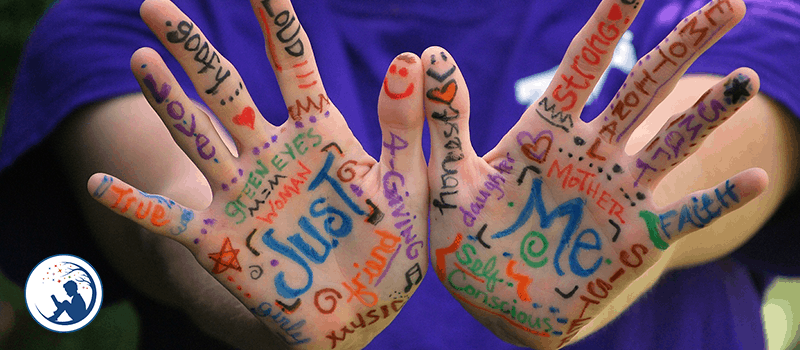If your child shies away from spelling homework or even point-blank refuses to do it, it’s clear they’re not exactly enamoured by the prospect spelling and learning to spell! While it can be worrying to see your child struggling with a certain aspect of learning, in reality, it’s completely normal. Take yourself back to your schooling days. Did you love all lessons? Were you always excited and keen to do your homework when you got home from school? Probably not! All children have preferences where learning is concerned; some like spelling, some don’t. If your child is the in the latter category, there are numerous things you can do to give them a helping hand and a nudge in the right direction.
As you’ve portably guessed, this article is all about making spelling fun. While there is an ongoing debate as to whether making learning fun actually increases the speed at which children learn, there can be no doubt that children would much prefer to be doing something that is fun and enjoyable rather than something that isn’t; therefore, making spelling homework and learning spell as fun as possible should be your goal if your little one is struggling where spelling is concerned.
In today’s piece, we’ll furnish you with ten fun ways to make spelling fun!
Nine Activities To Make Learning To Spell Fun
#1 – Letter Grouping
One of the quickest ways for your child to learn how to spell words is to group words that have similar or the same spelling patterns. For example, if your child is learning ‘er’ words, make a list of all of the various words that have the ‘er’ sound in them. Some words will contain ‘ir’, such as ‘shirt’; some will have ‘ear’, such as ‘learn’; some will have ‘ur’, such as ‘burn’, and some may have ‘er’, such as ‘bigger’. Write different words on post-it notes, and ask your child to arrange them into the different spelling pattern group as quickly as they can.
#2 – Technology
While it is true that screen time should be limited for children, that doesn’t mean that using phones, tablets, and computers can’t help with learning to spell. Find spelling apps and games, and ask your child to download them. To mix things up, allow them to use these apps several times per week to boost their spelling ability.
#3 – Role Reversal
If there’s one thing children love, it’s a bit of role reversal! Let your child become the teacher. Ask them to test your spelling skills…but be sure to get a letter or two in each word wrong so they can correct you. Be warned though; they’ll often be a much stricter taskmaster than you’d imagine!
#4 – Typing instead of Handwriting
Learning to spell doesn’t just improve spelling skills; it also gives your child’s handwriting skills a boost too. However, from time to time, it’s wise to put the pen and paper down and move over to the computer. Not only will this help with their spelling, but it’ll also begin their journey to learning to use and computer and type on a keyboard. Open up a word document then read words from their spelling list, asking them to type them. Explain to them that if a red squiggly line appears under the word, it’s spelt incorrectly, and they need to keep trying until it disappears.
#5 – Word Search
Word searches are not only fun but also very educational. There are loads of word searches for children available online, but making your own is really straight forward. Begin with small grids, then as your child’s spelling ability progresses, increase the size of the grid and the number of words within it. Not only will this help their spelling skills, but it will also boost their problem-solving skills too.
#6 – Scrabble
Although many people view Scrabble as a game for adults, it can be used to great effect to help children improve their spelling skills. Get all of the scrabble letters out as well as the letters racks, then ask your child to spell out all of the words on their spelling list. Add up the scores for each letter, totalling them up at the end to give an overall score. Once your child becomes confident and proficient enough, you can play full games of scrabble with them!
#7 – Letter Magnets
If you read any article related to teaching children how to spell and activities to use, you will almost certainly come across magnet letters. Why? Because they’re an invaluable tool for making learning to spell fun! There are numerous games and activities you can play with letter magnets, but we suggest asking your child to spell out the words from their spelling list one day, then removing some letters from the words the next. It’s their job to figure out which letters are missing and where they need to go.
#8 – Blackboard/Whiteboards
Using chalk on blackboards and marker pens on whiteboards is a very practical way for learning to spell as mistakes can be corrected easily, which removes the stresses of getting words wrong. Read your child’s spelling list to them, asking them to spell each word. If they make any mistakes, ask them to erase the letter(s) they got wrong, replacing them with the correct letters in different colours. Chalk can even be used outdoors on walls, paving stones and the like, just remember to tell them where they can and can’t write and draw!
#9 – Riddles, Poems, and Limericks
Writing poems, riddles, and the like is a fantastic way to practise spelling, handwriting, and using both imagination and vocabulary to create a unique piece of written work. Take each word from your child’s spelling list and ask them to write a poem or riddle for that word. Be on hand to help out and make suggestions if they’re unsure or tentative. The rule is that the focus word must appear in each line at least once. This will help them to practise writing each word out, without it becoming a tedious copying exercise where they’re merely writing the word over and over.
How To Make Learning to Spell Fun: A Summary
The most effective way to help a child learn to spell (or anything for that), is to make it fun and enjoyable. While there are hundreds and hundreds of spelling games and activities that can be used for this purpose, the above nine should provide you with a starting point from which to base your learning around. As your child’s spelling ability grows, so can the number of games and activities, as well as how difficult and challenging they are. Remember, the aim is to keep it light and enjoyable; if your child starts to get bored or their concentration begins to wane, take a break and re-try later on or the next day.

